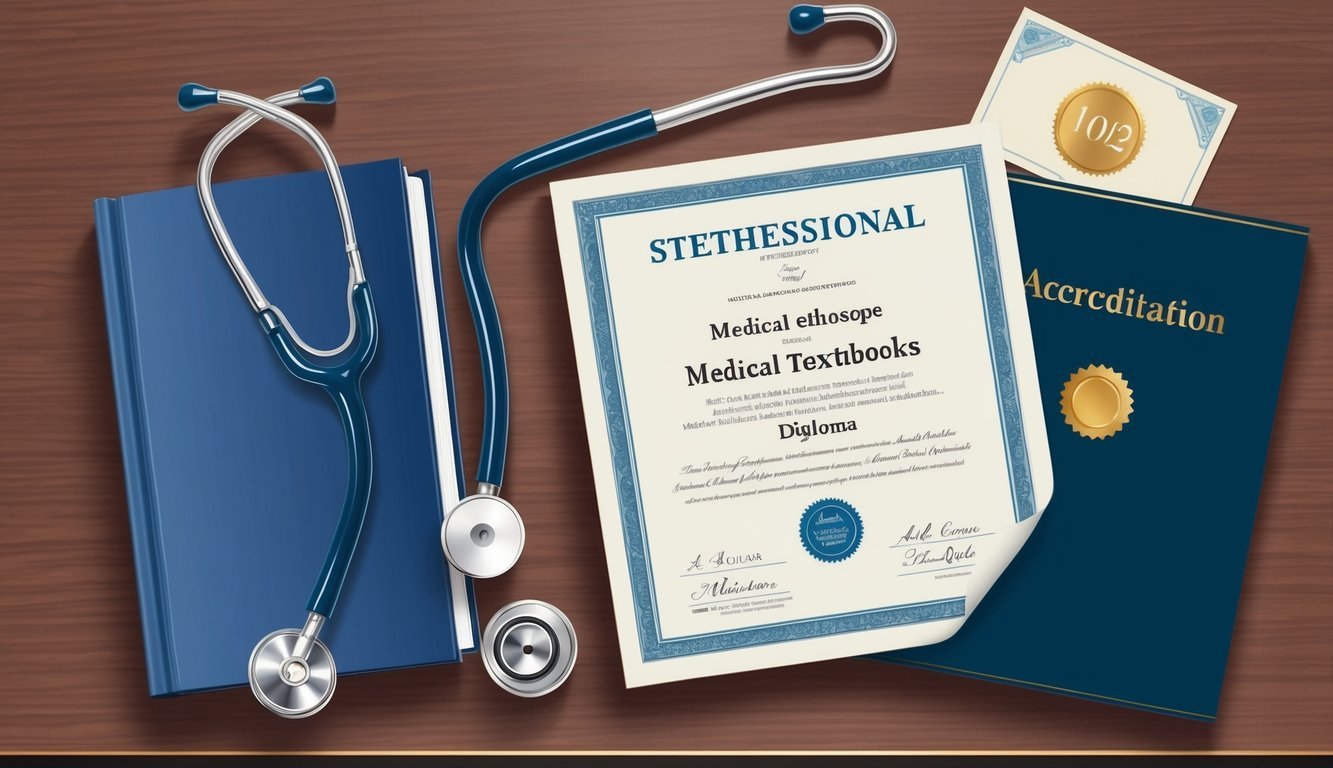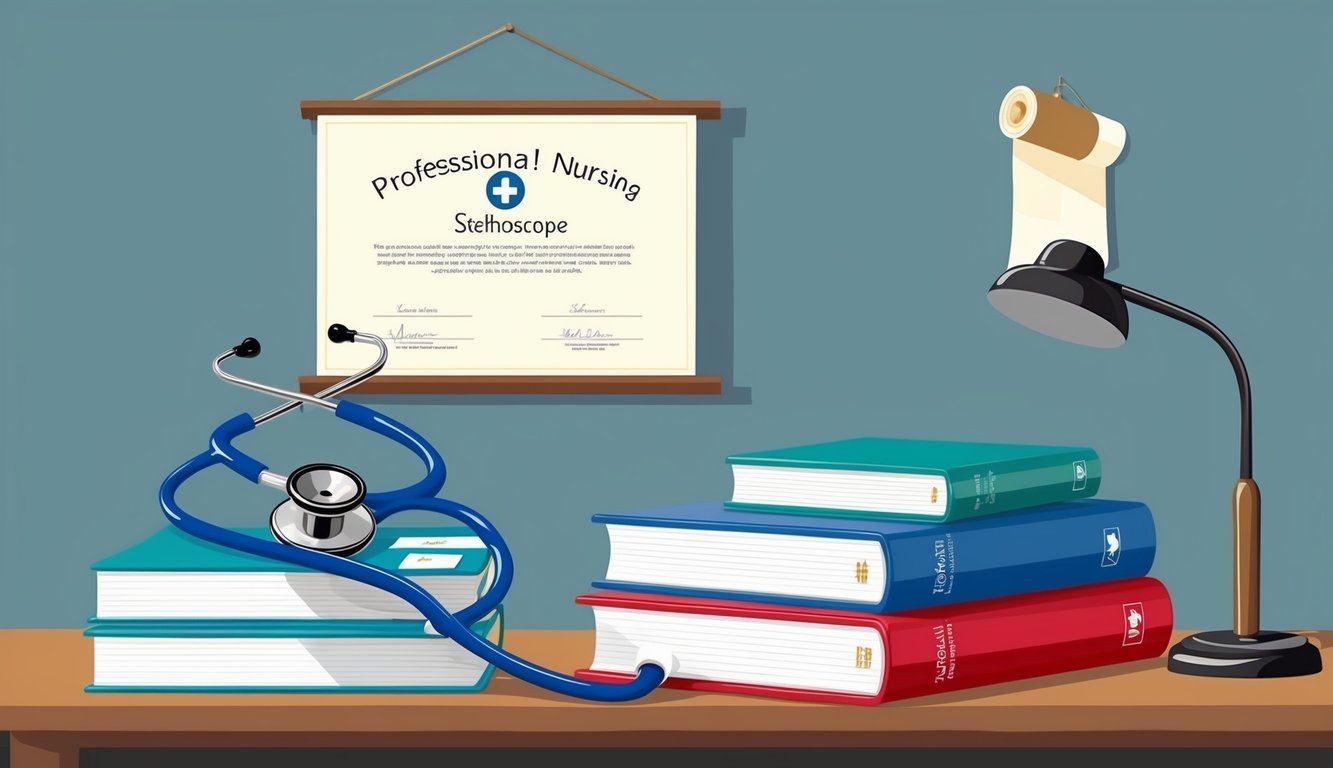If you’re considering a career as a Licensed Practical Nurse (LPN), finding an affordable program near you is a great first step. The cheapest LPN programs in your area can typically be completed in as little as 12 months, allowing you to start your career quickly.
Many institutions offer various options, including full-time, part-time, and evening classes, accommodating different schedules.
To enroll in a practical nursing program, you’ll generally need a high school diploma or a GED certificate.
This foundational requirement ensures that you have the necessary academic skills to succeed in your coursework.
Researching local programs can reveal options that suit your budget, with some programs costing as little as $4,000 to $5,000 while still providing a quality education that prepares you for the NCLEX-PN exam.
Explore your choices by checking community colleges and vocational institutions in your area.
Programs like those at Johnson County Community College and Florida Gateway College offer affordable paths to becoming a licensed practical nurse, ensuring you can embark on this rewarding career without breaking the bank.
Identifying Affordable LPN Programs

When searching for affordable Licensed Practical Nurse (LPN) programs, it is essential to evaluate tuition costs, financial aid options, and the differences between public and private institutions.
Understanding these factors will help you make a well-informed decision that aligns with your budget and career goals.
Tuition and Associated Costs
Tuition for LPN programs varies significantly based on location and institution type.
On average, in-state students at community colleges pay between $4,000 and $15,000, while out-of-state tuition can exceed $20,000.
It’s important to factor in additional expenses beyond tuition, as these can impact your overall budget:
- Books and Supplies: Expect to pay between $500 and $1,500.
- Clinical Fees: Some programs charge fees ranging from $200 to $800 for clinical rotations.
- Miscellaneous Fees: Look out for registration, lab, and exam fees which can add up.
Research local options to find programs with lower costs and consider affordable online LPN programs that may offer more flexible pricing.
Financial Aid and Scholarship Options
Many students rely on financial aid and scholarships to help cover LPN program costs.
Federal aid programs, like Pell Grants and federal student loans, are widely available for eligible students.
You should also investigate specific scholarships geared towards nursing students, such as:
- Nursing Scholarships: Offered by hospitals, professional organizations, and schools.
- State Grants: Some states provide financial support for students pursuing careers in healthcare.
Contact your desired institutions for information on available financial aid and scholarship applications.
Websites like Nurse.org can provide valuable resources and tips for maximizing your financial aid opportunities.
Public vs. Private Institutions
Choosing between public and private institutions can significantly affect your education costs.
Public colleges typically offer lower tuition rates, especially for in-state students.
In contrast, private institutions often have higher tuition but may provide more personalized support.
When evaluating programs, consider the following:
- Public Institutions: Generally more affordable, especially for residents.
- Private Institutions: May have smaller class sizes and additional resources, but at a higher cost.
In addition, some community colleges have partnerships with private institutions, allowing you to transfer with potential credits while benefiting from lower tuition costs initially.
Make sure to research the program reputation and job placement rates to ensure you are making the best choice for your nursing career.
Program Essentials and Accreditation

When choosing a Licensed Practical Nurse (LPN) program, understanding accreditation, curriculum, and examination preparation is crucial for your future career.
These elements not only ensure the quality of education but also affect your eligibility for licensure and job opportunities.
Understanding Accreditation Standards
Accreditation is vital for any LPN program.
It ensures that the program meets specific educational standards recognized by healthcare professionals.
You should look for programs accredited by reputable organizations such as the Accreditation Commission for Education in Nursing (ACEN) or the Commission on Collegiate Nursing Education (CCNE).
Benefits of attending an accredited program include:
- Transferability of credits if you choose to continue your education later.
- Increased eligibility for federal financial aid.
- Higher quality education, which often correlates with better NCLEX-PN pass rates.
Curriculum and Clinical Training Requirements
Your chosen program should include comprehensive nursing courses that cover both theoretical and practical aspects of nursing.
This typically involves subjects such as:
- Pharmacology
- Nutrition
- Mental Health Nursing
Moreover, hands-on training is essential.
Accredited programs usually require a minimum number of clinical hours in various healthcare settings.
This real-world experience is invaluable, preparing you to work competently in diverse environments.
Key components of clinical training typically include:
| Component | Hours Required |
|---|---|
| Fundamental Nursing Skills | 120-150 hours |
| Pediatric Nursing | 60-90 hours |
| Geriatric Nursing | 60-90 hours |
NCLEX-PN Examination Preparation
Passing the NCLEX-PN is a crucial step towards becoming a licensed practical nurse.
An effective LPN program should adequately prepare you for this exam through rigorous coursework and practice tests.
Look for programs with a solid NCLEX-PN pass rate, ideally above 80%.
This indicates that students typically perform well on the exam.
Many programs offer study resources, including review courses and practice questions, to enhance your readiness.
Studying effectively for the NCLEX-PN involves:
- Familiarizing yourself with the test format.
- Engaging in mock exams.
- Joining study groups for collaborative learning.
Ensuring your program excels in these areas will significantly enhance your prospects in the nursing field.
Admissions Process and Prerequisites
To pursue a Licensed Practical Nurse (LPN) program, you must navigate specific admission requirements and pass necessary health and background checks. Understanding these steps is essential for ensuring a smooth application process.
Admission Requirements for LPN Programs
Most LPN programs require applicants to have a high school diploma or a GED equivalent.
You may also need to demonstrate essential academic skills, often measured through standardized tests or specific coursework in subjects like math and science.
Additional requirements may include:
- Personal Statement: A brief essay about your motivations and career goals.
- Letters of Recommendation: From educators or professionals in healthcare.
- Entrance Exam: Some programs require passing an entrance exam, such as the TEAS (Test of Essential Academic Skills).
It’s crucial to check each program’s specific requirements, as they can vary.
The details can often be found on school websites such as PracticalNursing.org.
Health and Background Checks
Health and background checks are vital to ensure safety in the healthcare environment.
Most LPN programs require:
- Background Check: A comprehensive review of your criminal history. This is mandatory for those seeking licensure after completion.
- Drug Screen: A negative drug test is often required to ensure a drug-free nursing workforce.
- Immunizations: Proof of immunizations, including MMR, hepatitis, and varicella, will likely be necessary.
Completing these checks not only prepares you for your education but also aligns with the standards set by healthcare employers.
For more information, you can explore guidelines from resources like NursingProcess.org.
Career Path and Advancement

In the nursing field, becoming a Licensed Practical Nurse (LPN) can open various pathways.
Understanding the scope of your role, advancement opportunities, and the job market will inform your career decisions effectively.
Scope of an LPN Role
As an LPN, you provide essential nursing care under the supervision of registered nurses (RNs) and physicians.
Your primary responsibilities may include monitoring vital signs, administering medications, and assisting with daily activities in settings like nursing homes and rehabilitation centers.
The hands-on experience gained as an LPN is invaluable.
You often work closely with patients, allowing you to develop strong patient relationships and enhance your clinical skills.
This role serves as a critical stepping stone in the healthcare career pipeline.
Advancement Opportunities and Continuing Education
Many LPNs choose to advance their careers through further education.
Programs like LPN-to-RN or LPN-to-BSN allow you to obtain a higher degree and take on more responsibilities.
These pathways can lead to roles with greater autonomy and higher salaries.
Continuing education is crucial for maintaining your state licensure.
Many states require LPNs to complete specific courses or training programs periodically.
Engaging in workshops and seminars also keeps you updated on best practices in patient care, which can enhance your employability.
Job Market and Earning Potential
The job market for LPNs is robust, with the Bureau of Labor Statistics projecting significant job growth in this field.
As healthcare needs increase, especially in aging populations, demand for LPNs is expected to rise.
Regarding earning potential, LPNs have competitive salaries.
As of recent data, the average hourly wage for LPNs is around $31.26, although this can vary based on location and healthcare setting.
Pursuing additional qualifications can further elevate your earning capacity and career trajectory.
Impact on the Healthcare Industry

The role of Licensed Practical Nurses (LPNs) is crucial in shaping the healthcare landscape.
Their contributions enhance patient care and foster collaboration within healthcare teams, which leads to more effective service delivery.
Contribution of LPNs to Healthcare Services
LPNs provide essential nursing care and support across various healthcare settings.
They perform tasks such as monitoring vital signs, administering medications, and assisting with daily activities, which are vital for patient recovery and comfort.
Specific areas where LPNs excel include:
- Patient Assessments: Conducting initial assessments helps in identifying patient needs.
- Wound Care: They play a critical role in managing wounds and preventing infections.
- Education: LPNs often educate patients and families about care plans and health management.
With their hands-on clinical practice, LPNs fill gaps in nursing education, allowing other healthcare professionals to focus on complex cases.
LPNs in Interdisciplinary Healthcare Teams
LPNs play a crucial role in healthcare teams.
They collaborate with various professionals, like RNs, physicians, and specialists.
Their presence encourages a more cohesive approach to patient management.
Key contributions include:
- Communication: LPNs relay important patient information, ensuring everyone remains informed.
- Team Dynamics: Their skills enhance workflow and support the quality of nursing practice.
- Role Flexibility: They adapt to different roles, whether in long-term care, hospitals, or outpatient settings.
By being part of these teams, LPNs actively participate in the overall healthcare provider efforts, improving patient outcomes and experiences.
Their effectiveness in nursing care underscores the importance of a well-structured healthcare team.

